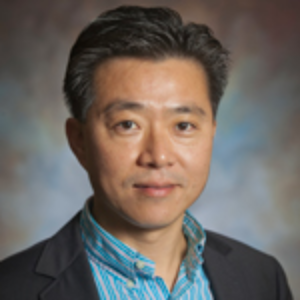How did you spend your yearlong leave from Lafayette?
I spent most of my yearlong sabbatical in Cambridge, Massachusetts, as an associate-in-research at the Fairbank Center for Chinese Studies at Harvard University. During my time there, I attended various weekly seminars and talks and worked on several research projects, utilizing the vast Harvard Library collections. I also traveled to South Korea in the summer of 2019 with a faculty research grant from the Academic Research Committee for my project on regional reactions to China’s Belt and Road Initiative and the U.S. Indo-Pacific strategy. In the summer I presented a paper on the subject at an academic conference in Singapore. From December 2019 till February 2020, I conducted research in South Korea with a fellowship from the Academy of Korean Studies, exploring the interplay between inter-Korean relations and the types of regional policy initiatives pursued by successive South Korean governments.
What were your objectives for your time away?
During my research leave, I had three main objectives: collecting data, presenting papers at workshops and conferences, and writing at various stages for peer-reviewed publications with respect to three different research projects, namely 1) my ongoing book-length project on the politics of nuclear energy in East Asia; 2) a study on inter-Korean relations and their impact on East Asian regionalism; and 3) a series of papers on the evolving regional order in East Asia.
What progress did you make? What were your key findings?
My research on China’s nuclear energy politics is forthcoming in Political Science Quarterly, a peer-reviewed journal. The article examines both the promises and perils of China’s relentless pursuit of nuclear energy. With a focus on curbing air pollution and enhancing geopolitical influence, China has substantially expanded its nuclear energy program, constructing or planning more than 50 nuclear reactors and exporting them to major regional powers around the world. While greater use of nuclear energy will help Beijing address its heavy reliance on coal and promote its global climate leadership, it also raises questions about nuclear safety and nuclear nonproliferation.
My other research on regional reactions to China’s Belt and Road Initiative and the U.S. Indo-Pacific Strategy has been published in the Journal of Indo-Pacific Affairs, an Air University of the United States Air Force journal. With an empirical focus on Japan, South Korea, and India, this article analyzes variation in national responses to the latest Chinese and American grand strategies.
Finally, I completed and presented a paper on the interplay between inter-Korean relations and various South Korean regional initiatives, which is currently under review at a peer-reviewed scholarly journal
How does this research relate to your teaching?
I am a firm believer in cross-fertilization between my research and teaching. In fact, most of my research projects stemmed from key issues and puzzles that emerged from my classes, such as intro classes on international politics and Asian studies, Chinese Foreign Policy, and Global Governance. My research in turn will allow me to keep abreast of the latest research and developments in my field of study and help me delineate pertinent points and gain applicable data and cases for my courses.
What do you plan to address next in your research?
I will continue to work on my book manuscript on the politics of nuclear energy in East Asia, especially the domestic debate on nuclear energy in Japan and South Korea. I will also work on the impact of China’s grand strategy on the East Asian regional order and the assessment of strategic competition between the United States and China.
Is there anything else you did during your leave that you'd like to share?
My family took advantage of our year in Massachusetts by making many weekend trips to various places in New England, from Cape Cod to New Hampshire to Maine.
What was the highlight?
My family and I drove to the top of Mt. Washington, the highest peak in the northeastern United States, and visited Bretton Woods, New Hampshire, where the postwar international monetary system commonly known as the Bretton Woods agreement was signed in 1944. After the quarantine, however, we had to settle for daily bike-riding and taking long walks along the Charles River.
What did you miss most about Lafayette?
I missed my friends and colleagues on College Hill and frequent trips to New York City. I really missed interacting with my students, who are passionate and inquisitive about what is going on in the world.
What are your plans for the summer?
Moving safely back to Easton during the quarantine, working remotely with my EXCEL student on one of my research projects, and playing lots of soccer and badminton with my family.
 Il Hyun Cho is associate professor of government & law and Asian studies. His research and teaching interests include international relations theory, global governance, security studies, nuclear proliferation, energy politics, environmental politics, Chinese foreign policy, and East Asian politics.
Il Hyun Cho is associate professor of government & law and Asian studies. His research and teaching interests include international relations theory, global governance, security studies, nuclear proliferation, energy politics, environmental politics, Chinese foreign policy, and East Asian politics.